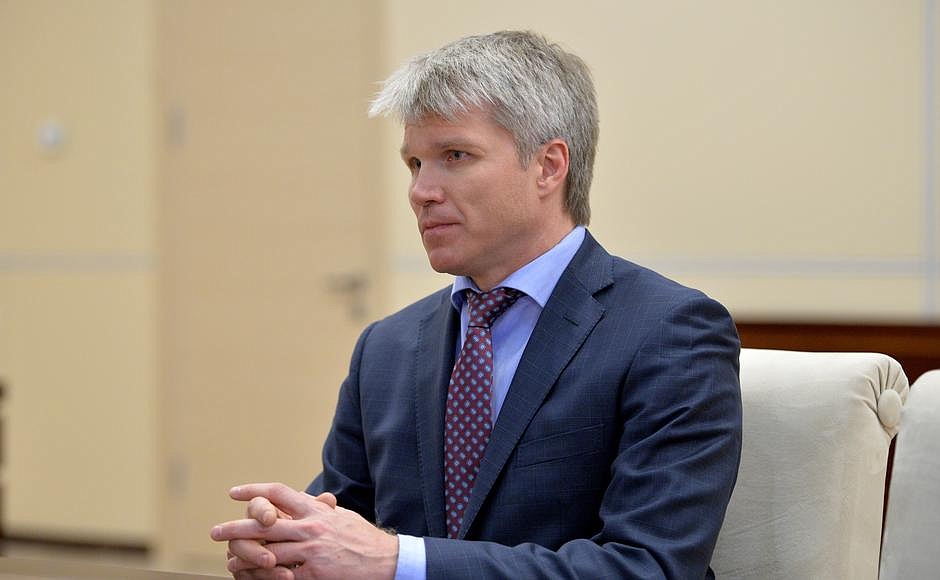By Paul Nicholson
January 11 – The Institute of National Anti-Doping Organisations (iNADO) statement calling for a ban on all Russian participation and hosting of international sporting events – which would include the 2017 FIFA Confederations Cup and 2018 World Cup – has been described as “strange” and “beyond the scope of their activities” by Russian minister of sport Pavel Kolobkov (pictured).
A Dublin ‘special leadership summit’ saw 19 National Anti-Doping Organisations sign the statement that demands “the removal of all major international competitions, as well a moratorium on the awarding of new competitions to Russia.”
The statement is a reaction to the second McLaren report alleging more than 1,000 Russians benefited from a state-sponsored doping programme between 2011 and 2015.
So far FIFA has resisted becoming engaged in the debate of moving competition away from Russia, dismissing the suggestions as political pressure. It will certainly maintain this position and support Russia which has invested billions of dollars in hosting the tournaments building new infrastructure at a time of economic uncertainty in the country with the fall in price of oil.
There appear to be no reasons to move the tournaments on football grounds. The ‘behind-closed-doors’ political pressure to move the competitions would likely be US driven and FIFA has become a very US-aware organisation with the US Department of Justice investigations into its commercial activities. FIFA has key US advisory companies – Clinton-linked PR outfit Teneo and lawyers Quinn Emmanuel – on highly paid retainers working in-house. Much may depend on how good a comrade new US president Donald Trump becomes.
In reference to the iNADO statement, Kolobkov said: “We are ready to discuss these issues with the IOC, with WADA… We have a work plan with WADA. I would not pay attention to the statements of some strange leaders.”
In their statement iNADO said its “leaders look to WADA, the global regulator, to monitor and act – as required by the Code and UNESCO Treaty Against Doping in Sport – to ensure evidence is investigated and appropriate consequences are applied.”
The proposals were signed by anti-doping leaders from Austria, Belgium (Flanders), Canada, Croatia, Denmark, Estonia, Finland, France, Germany, Ireland, Japan, Netherlands, Poland, Slovenia, Spain, South Africa, Sweden, Switzerland and USA.
Contact the writer of this story at moc.l1735103515labto1735103515ofdlr1735103515owedi1735103515sni@n1735103515osloh1735103515cin.l1735103515uap1735103515

